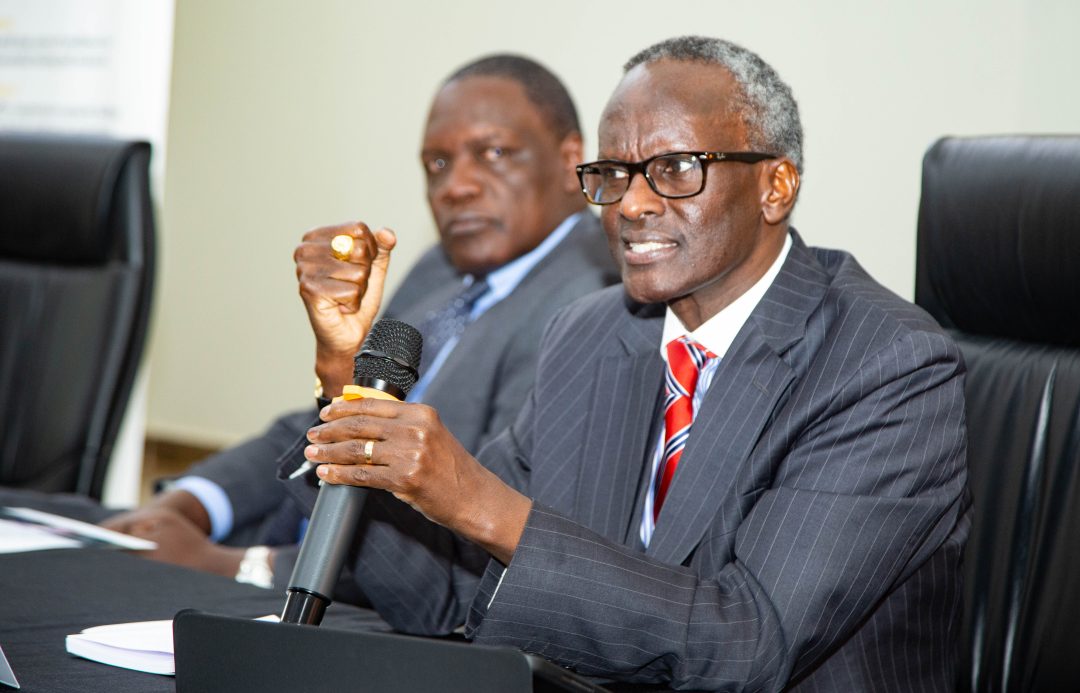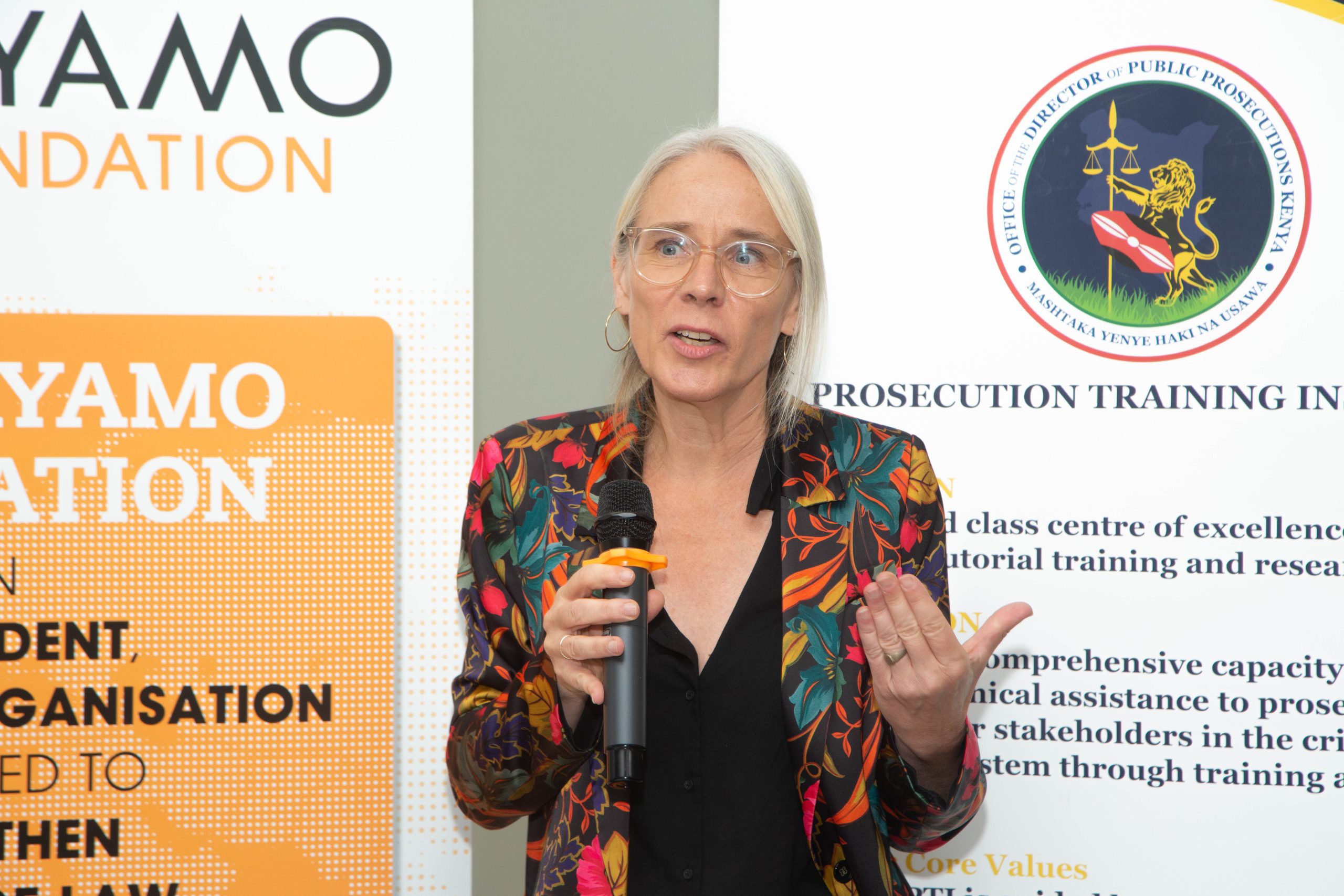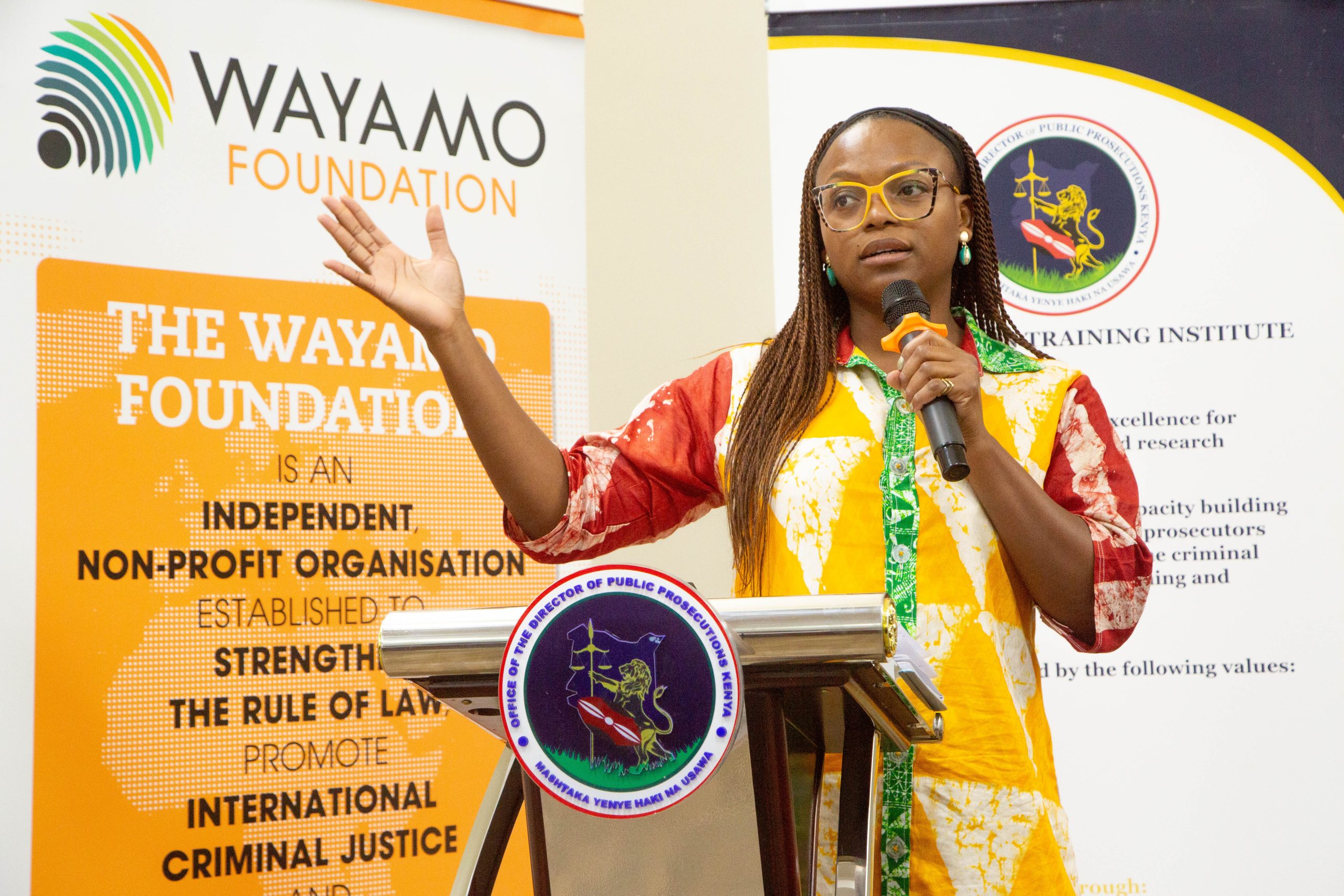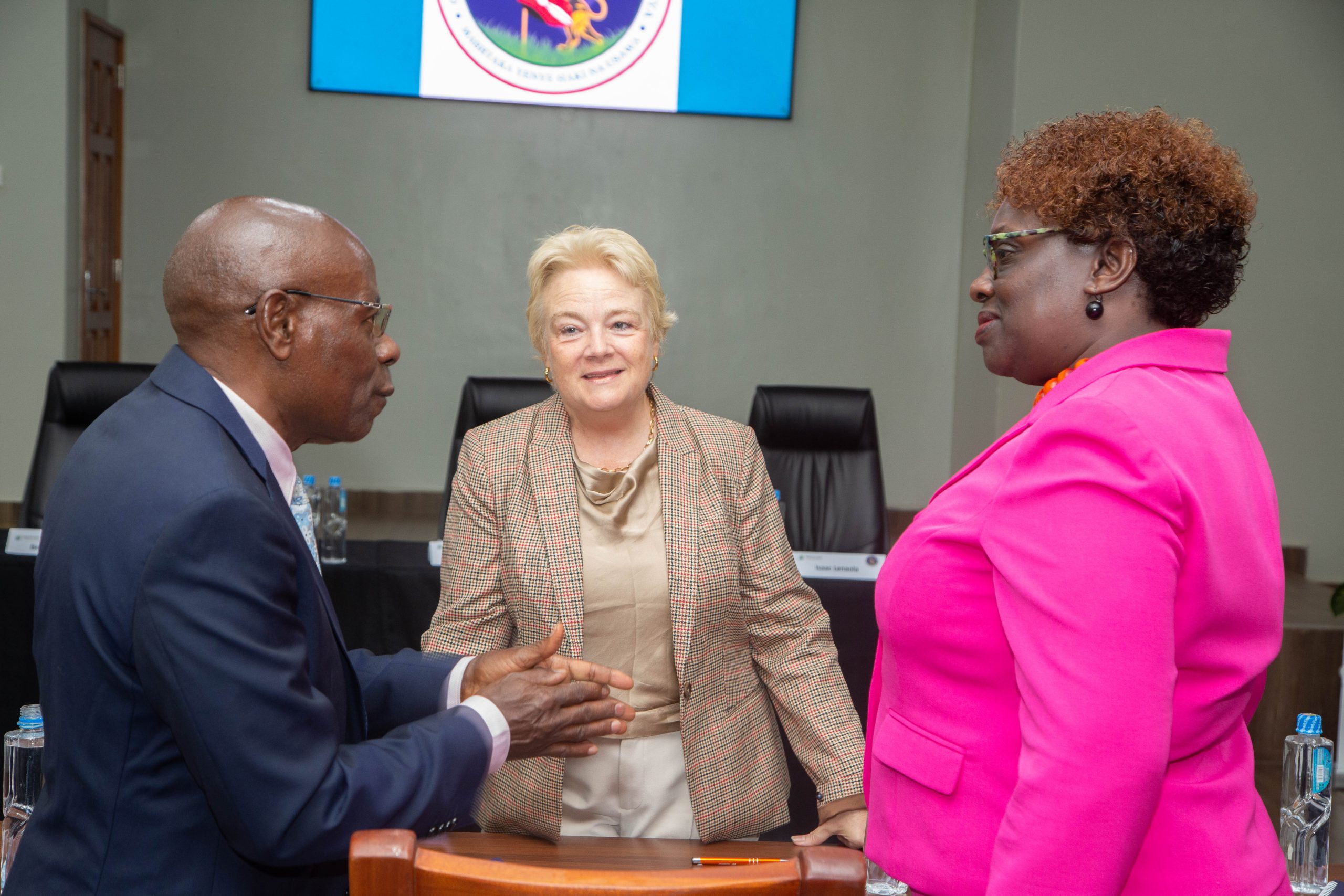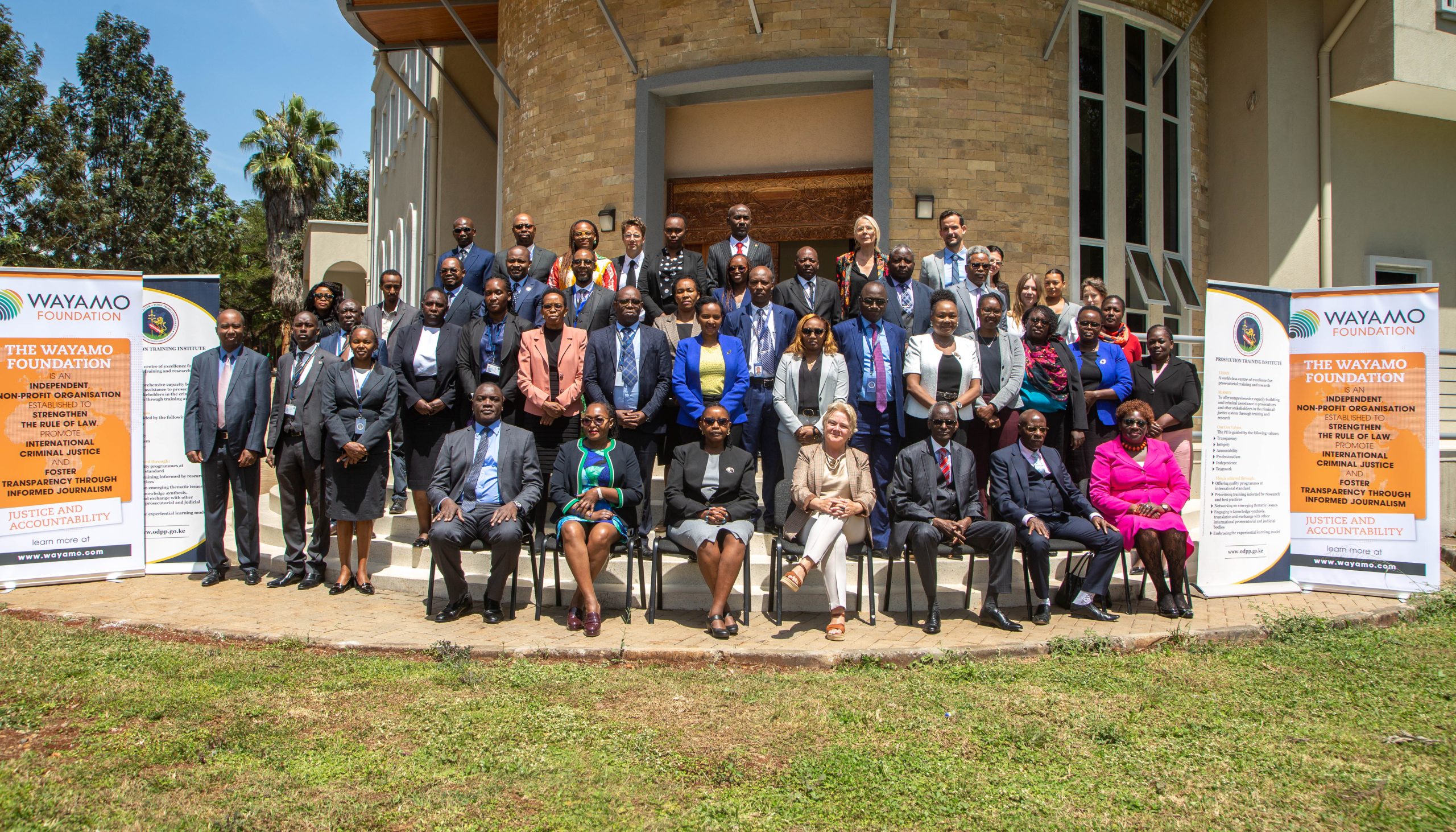Monday 9 September 2024 saw the Wayamo Foundation and the Prosecution Training Institute (PTI) hold the third in the current series of International Criminal Justice Symposiums since the two organisations started cooperating in 2023.
This symposium was formally opened by Alloys Kemo, Kenya’s Deputy Director of Public Prosecutions (DPP) and PTI Head, and Bettina Ambach, Director of the Wayamo Foundation. The participants, made up of some 40 prosecutors and five judges from Kenya and Uganda, engaged in a respectful and spirited discussion and debate.
The first session served to set the tone for the day. In his presentation entitled, “Advancing the Rule of Law in Kenya: opportunities brought about by the Rome Statute”, Supreme Court Judge Isaac Lenaola, defined the desired requisites for each and every prosecutor in the room as the twin qualities of being courageous and passionate. Noting that Kenya had all the necessary laws at its disposal to investigate, prosecute and adjudicate international crimes domestically, he encouraged those present with the rallying cry of “Yes, you can!”
The following speaker, Anne J. van Dooren, a prosecutor with The Netherlands National Public Prosecution Service, gave her listeners some practical examples of how international crimes cases could be built using universal jurisdiction. Peer exchange was to be warmly welcomed and would show her Kenyan colleagues that with some additional knowledge of international criminal law and the use of new technologies and open-source investigations, cases involving international crimes committed in other -sometimes remote- jurisdictions could be successfully prepared and prosecuted.
International Law expert and former International Criminal Court investigator, Adejoké Babington-Ashaye, then spoke about the prosecution of conflict-related sexual and gender-based violence (SGBV) cases. She advised that the collection of SGBV evidence should always be mainstreamed across investigations, and in this respect stressed the key potential of linkage evidence. Her address gave rise to an interesting and relevant discussion about the necessary conditions/context for SGBV to be prosecuted under Kenya’s International Crimes Act.
Justice Susan Okalany, Judge of the International Crimes Division of the Ugandan High Court, discussed the recent verdict in the long trial of Thomas Kwoyelo, a former Lord’s Resistance Army commander who was convicted for crimes against humanity, war crimes and other serious crimes. She was followed in turn by Vincent Monda, Senior Assistant DPP, who dealt with the Kenyan International Crimes Act and explained how it is to be applied in the “Baby Pendo” case, the country’s first crimes against humanity case which is scheduled to have its day in court in October 2024.
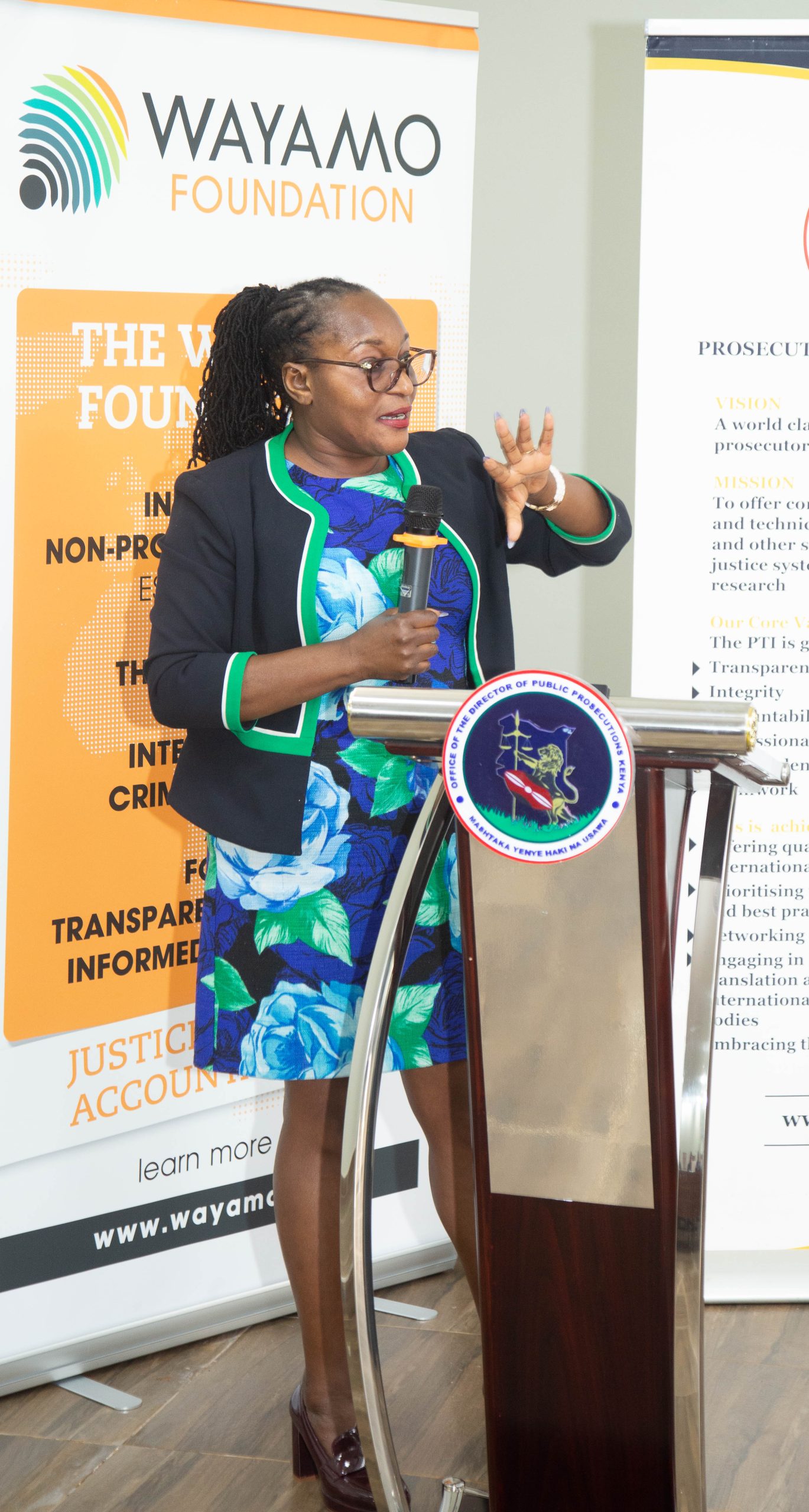
Diana Mochache
Kenyan High Court Judge, Diana Mochache, gave an impassioned speech about the plan of adjudicating international and transnational crimes in Kenyan courts, underlining the fact that Kenya’s track record of dealing with piracy and terrorism cases meant that it had already acquired some experience of addressing such complex cases. She went on to reiterate the core message of the morning, namely, that with courage and passion, international crime cases could be heard in national systems such as Kenya’s.
The last speaker of the day, Nick Leddy, Head of Litigation, Legal Action Worldwide, summarised his organisation’s vision as being that of improving access to justice to the most vulnerable in conflict-affected areas through creative legal solutions, which include but are not limited to universal jurisdiction.
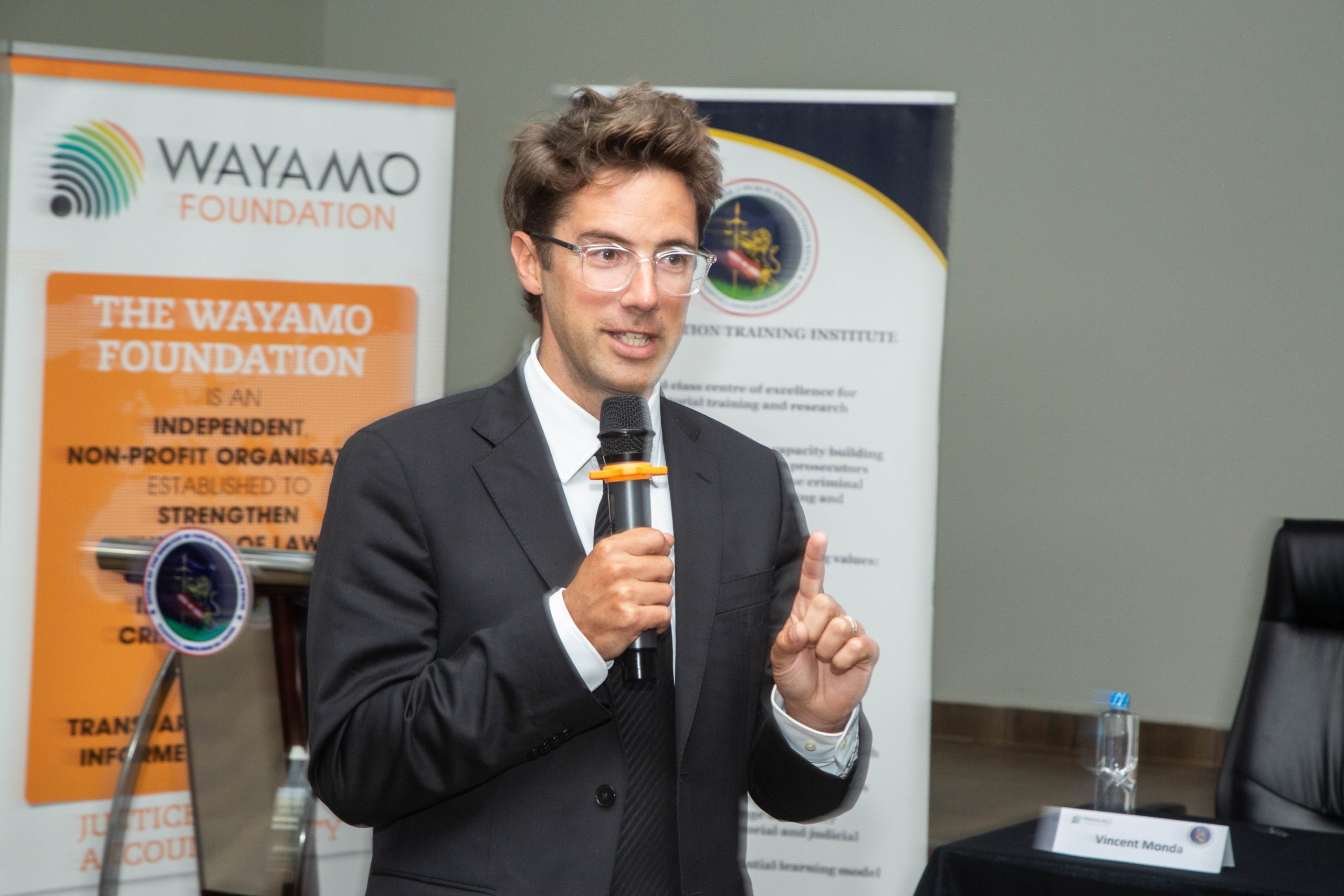
Mikel Delagrange
In what had been an instructive, productive and stimulating day, it was left to Wayamo Foundation’s Senior International Legal Advisor, Mikel Delagrange, to “bring it all together”. Loosely paraphrasing his speech, his main conclusions were as follows:
- In this process you are not alone. Civil society organisations, open-source information experts… indeed a whole network of actors is willing to help in this communal effort to bring international crime cases in domestic courts.
- Crimes do not happen in isolation. Transnational crimes often have a nexus with international crimes. Put a clamp on the financial resources of criminal gangs and you will inhibit their ability to commit more crimes. There are different pieces to a greater puzzle.
- To prosecute potential international crimes cases which were committed in neighbouring countries in Kenyan courts is not interfering with other states. It is rather telling them that Kenya is not a safe haven for criminals from other countries, and that Kenya wants to be seen as a country which respects the rule of law.
- There is nothing inherently complex about international criminal law. Kenya can take a leadership role here. Indeed it has already shown the will and courage to do this, as it is doing right now with the “Baby Pendo” case, which will be seeing its day in court in the next month.

